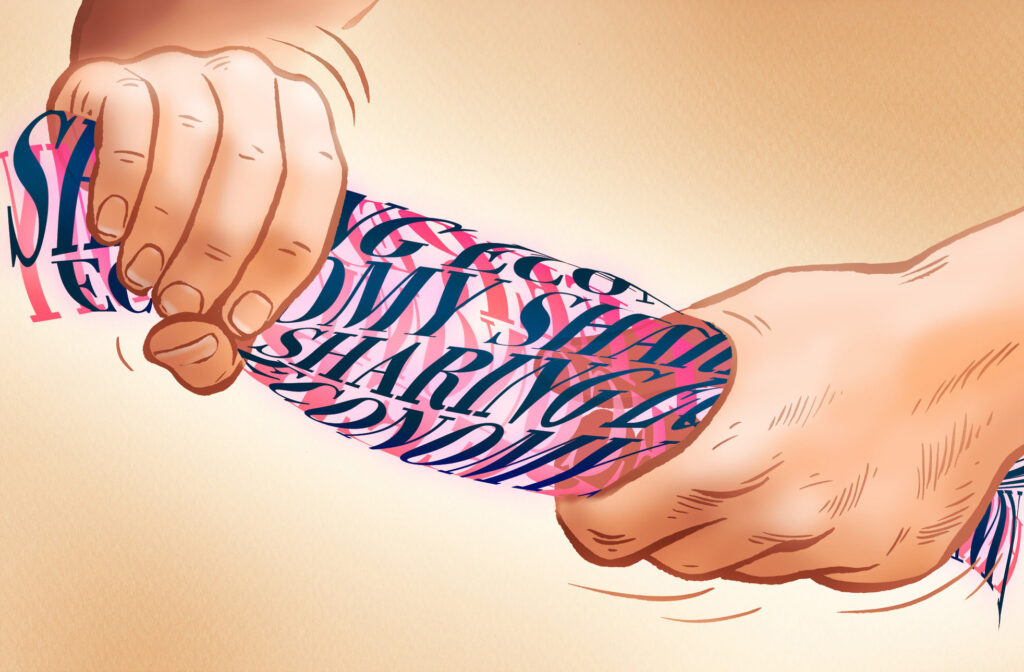How can you unravel the mess that is made when someone twists your words? Who would warp what you say into something unrecognizable or offensive? And why might anyone be motivated to mash up what you mean to say?
It has long been an effective defense tactic to twist up the words of any person who might feel as though he or she might be threatened. You might remember having done such a thing as a defensive tactic in your youth, as a method to aide-step some undesirable task, inconvenient discipline, or penalty.
We all communicate in general ways which include a mutual understanding of detailed specifics, and this method is most effective (though often way below 90%) in face-to-face communication which seems to work the best.
Language communication is less effective the more the physical connection is severed. For instance, clarity and comprehension decrease when you video chat, more so when you communicate via voice only, and even more easily confused when written only, as in text messaging.
The less face-to-face, the more margin for error in communicating effectively as a representation of the intentions of the communicator. This is normal. So, you could twist someone’s words innocently depending on your degree of separation during the intended communication.
There are hundreds of thousands of filters in our heads that someone’s words must pass through to be understood by you. This can be innocently problematic if, let’s say, you suffered horrific physical abuse at the hands of a parent when you were young, then you heard a neighbor talking about how the father across the street beat his daughter in a game of chess. You could have been so traumatized that all you heard what that “the father beat his daughter.”
No one would blame you for retelling that story to your friend who was a caseworker because you felt it was your duty to say or do something to help someone you thought you could share an affinity with as a young victim of physical abuse. In this case, the word twisting was by accident or unintentional.
Then there are those folks who are twisting your words to make you look bad intentionally and on purpose. They may be motivated to discredit you for any number of reasons from avoiding responsibility to causing you harm, either directly or indirectly.
The most proficient groups of people who are adept at twisting the words of others are narcissists, sociopaths, and psychopaths, but that doesn’t mean that if someone is mashing up what you are trying to say that they are on the Anti-social Personality Disorder (ASPD) spectrum.
They may have an agenda (we see this a lot in the media when people or witnesses are interviewed any sound bites are used out of context), and it just so happens that certain words that you spoke or wrote serve or support their point of view, even if people who knew you would know that you would never say such a thing (in the way it was represented).
How can you unravel the mess that is made when someone twists your words?
If you are dealing with a neurotypical person free from any malignant motivation, you will be able to reason with them, explaining your intentions and clarifying as much as necessary to get a clear understanding. After affirming the understanding, you could request a retraction, which would be a reasonable thing to do for such a misunderstanding.
If you are dealing with an individual on the ASPD spectrum, things will be a little dicier, because they may have no intention of retracting anything, and their sole purpose was to make you look bad.
The best thing you can do is to keep your distance from this deviant and not to respond to anything that he or she has to say about you and/or what you (supposedly) said.
Continue to ignore this foul reporter, and take this opportunity to establish your thoughts and ideals explicitly, and there’s no better time to do so thanks to the Internet. Start a blog (they are free) and type away, stating clearly how you feel about things.
The people who know you? No problem. They know you wouldn’t have said such a thing, but anyone else? They might not know you so well. So, having a blog, a site where they can have a better understanding of the kind of person you are, what you think, feel, and believe, they are more likely to see the contrast in your words that were twisted by a questionable “source.”
Be careful though. Be certain not to reply to any of the comments by Internet users who might be representing the twisting reporter. Even if you feel compelled to defend yourself, don’t do it. It only makes matters worse and makes you look like you are trying to cover up something.
Only respond to your supporters, and encourage them not to defend you either, though some will. You might feel like this is a good thing when a friend jumps on a commenter to defend your honor but watch and see what happens.
More than likely, the back-and-forth banter will escalate, and things will be said (or published on the Internet) that can be found and referenced later, (long after you and I are gone). So, if you decide to disclose about yourself, and how you think and live, then also state your policy somewhere that you do not respond to unfounded accusations and you expect your supporters to follow in kind.
What will happen?
The truth will prevail over time.
Because psychos quickly lose interest in attacking someone if no one fights back. They find some other target they can spar with because that’s how they get their kicks.
So let your light shine, and don’t let anyone dim it. Try as they may, you just keep singing your song.
